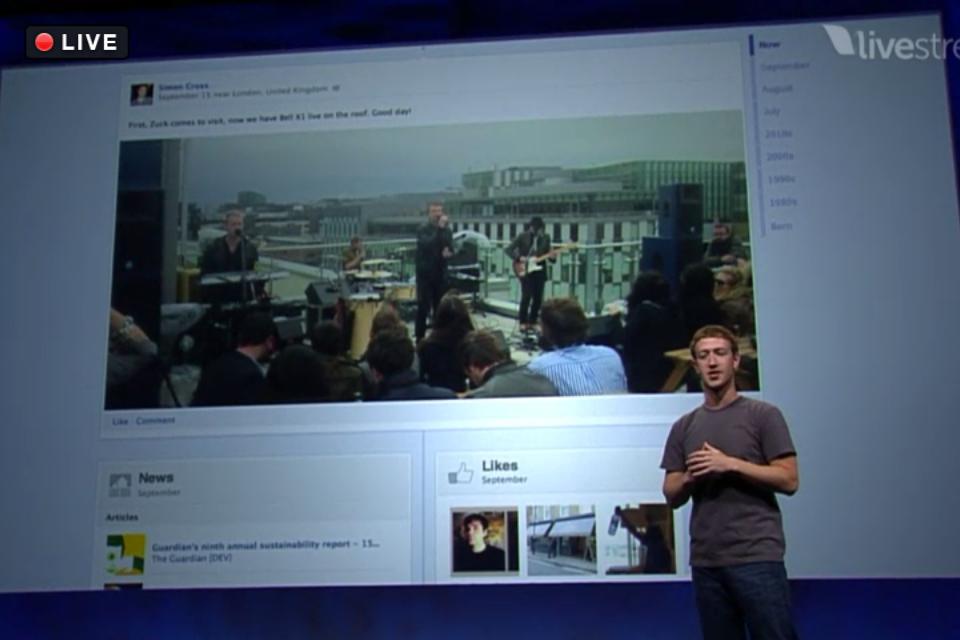Why Facebook is building a second internet
Facebook will be watching every move you make

The rumour mill predicted that Facebook would launch something big this week, and for once it underestimated things: Facebook wants to own the entire internet - and it wants to own your entire life too.
I'm not exaggerating. From the cradle to the grave, Facebook would like you to share every thought, every song you listen to, every photograph you shoot and everything you read with some or all of your Facebook friends and subscribers.
Remember the adage: if you can't see what product a site is selling, the product is you. That's definitely the case with Facebook, whose entire business depends on mining the details of your life to better target ads for pointless crap you don't need.
In that context, Facebook urging you to share everything - everything - is chilling. Remember when we used to worry about Google storing search data? That's a drop in the ocean compared to what Facebook's trying to do.
It's all very reminiscent of the Police song Every Breath You Take: like the song's protagonist, Facebook will be watching every move you make, vow you break, smile you fake and claim you stake.
Every Breath You Take is a popular wedding song because stacks of people miss its sinister subtext.
Those people are going to love the new Facebook.
Sign up for breaking news, reviews, opinion, top tech deals, and more.
Anti social
When Facebook describes something as more social, it means less social: the new Facebook doesn't just want you to post your life on Facebook, but to actually live your life within Facebook's comforting embrace.
Visiting The Guardian means leaving Facebook and seeing non-Facebook ads. Better, surely, for The Guardian to appear inside Facebook, surrounded by Facebook ads, generating data for Facebook's ads to better target you in future. Better, surely, to have Facebook deliver your Spotify music, your Netflix movies, your everything else.
What's really going on here is that Facebook's bringing Beacon back. In 2007, we were appalled at the prospect of external sites telling Facebook what we'd been up to so that it could better target its ads.
Now, it seems, we're delighted by exactly the same thing - but it's OK this time because the external sites are inside Facebook now! Yes, this time around you have to give the apps consent, but that's a one-time job: will users really understand the implications of that, understand that a per-item Like has been replaced by a pre-emptive Like Everything?
There are practical concerns too. How do you get your stuff back out again if you decide you don't want to keep it on Facebook? Where will you take your stuff if Facebook's cornered the market for photo sharing, video sharing and whatever-else sharing, driving rivals out of business? What are you going to do about your Timeline if you get divorced? What happens if Facebook cocks up and deletes your account?
Facebook is essentially building a second internet here, a service that offers many of the things you'll find on the real internet but that closely monitors everything you do - and which is owned by a faraway, unaccountable private company with a long track record of messing with its users' privacy.
Does that worry you? Because it scares the hell out of me.

Contributor
Writer, broadcaster, musician and kitchen gadget obsessive Carrie Marshall has been writing about tech since 1998, contributing sage advice and odd opinions to all kinds of magazines and websites as well as writing more than twenty books. Her latest, a love letter to music titled Small Town Joy, is on sale now. She is the singer in spectacularly obscure Glaswegian rock band Unquiet Mind.